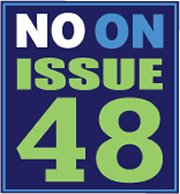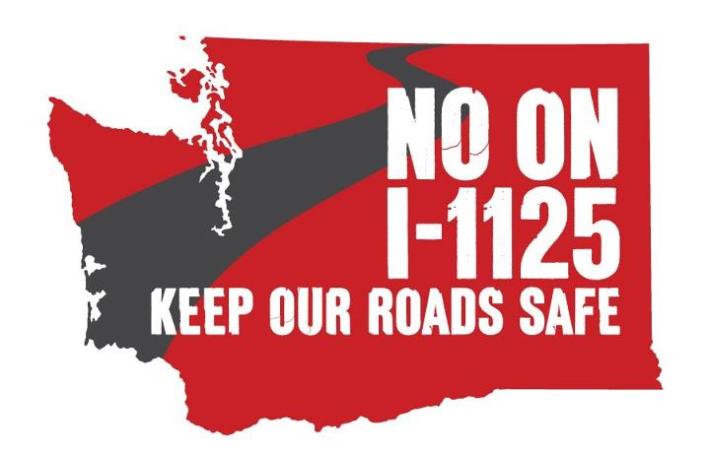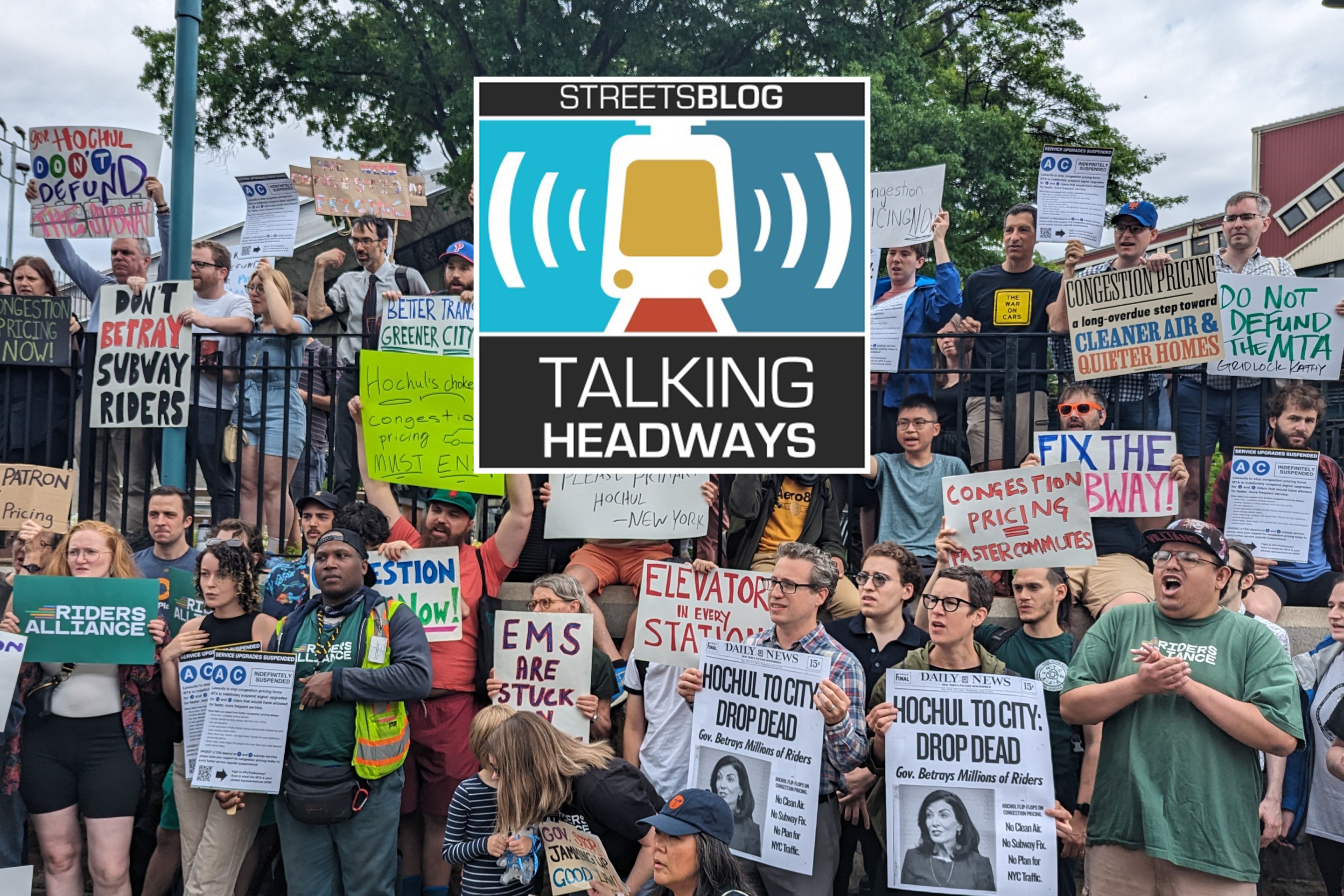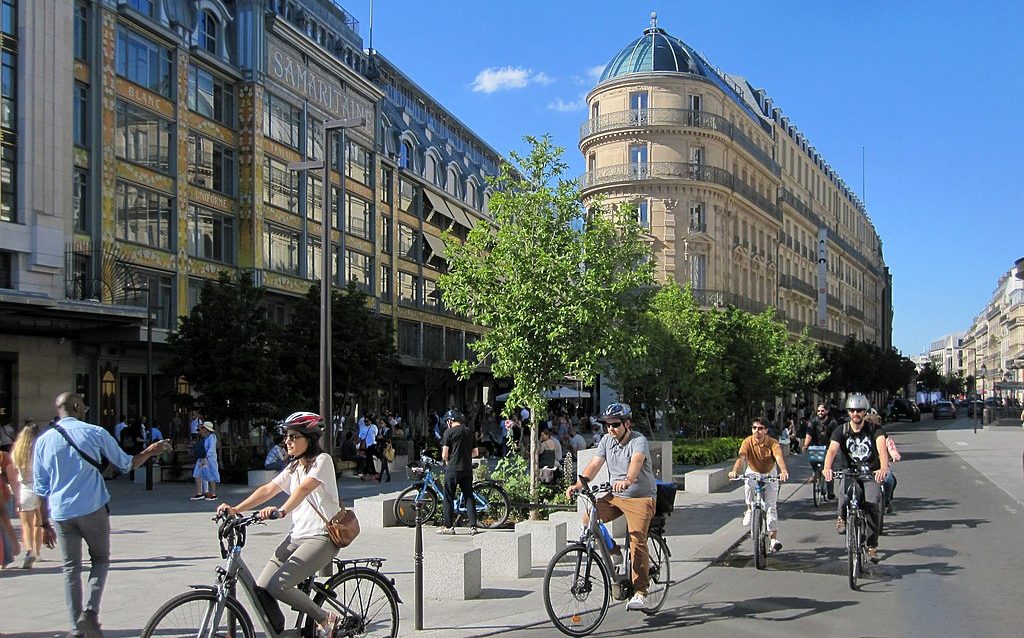If you live in Durham County, North Carolina, Montcalm County, Michigan, Cincinnati, Ohio, or anywhere in Washington state, today is Election Day – and you’ve got decisions to make about transit.
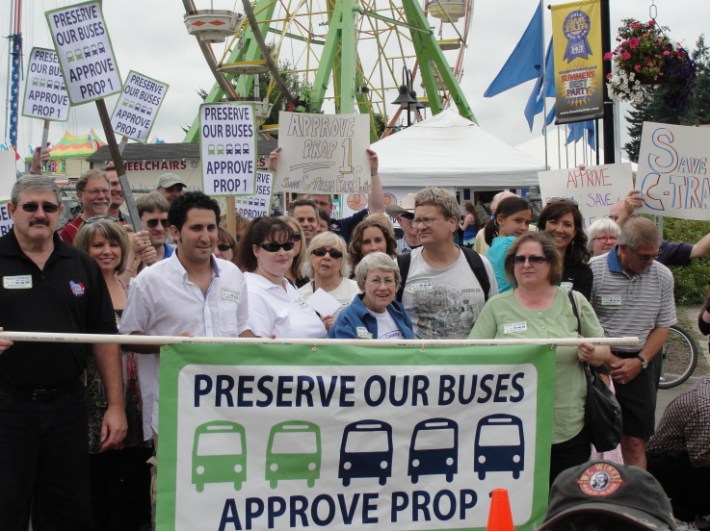
There are six ballot initiatives up for a popular vote today that will determine the future of transit service in these areas. They follow two referenda last week in Colorado on sales taxes to pay for transit service. One, to implement a new 0.35 percent sales tax increase in Avon, CO to pay for bus replacements, bus stop improvements, and other expenses, was voted down 38 percent to 62 percent. But another measure, in Sterling, CO, that merely sought to extend indefinitely a 0.1 percent sales tax increase to fund the transit system, was approved 70 percent to 30 percent.
So how will transit-related measures fare today? Here’s a rundown of what’s on tap (thanks to the Center for Transportation Excellence for collecting this important information):
A “Candy Store” for Buses and Bikes in Seattle, WA: Seattle’s going right to the source in proposing a $60 increase on the vehicle license fee. The allocation of the $204 million in expected revenues (over a decade) is supremely civilized: 49 percent to transit, 29 percent to road maintenance and safety, and 22 percent to bike/ped infrastructure. Opponents say it’s a "candy store" for special interests. The campaign chairman of "Citizens Against Raising Car Tabs" takes a page out of the Tom Coburn/Rand Paul playbook by blaming bike/ped spending for crumbling bridges, too. Proponents of the measure say it corrects mistakes of the past, when the city declined to make necessary investments and got “four decades of political paralysis and gridlock” as a result. They say revenues from the “car-tab” fee would improve transit, double the annual investment in sidewalks and repaving projects, and expand “family-friendly bicycle infrastructure.” More on other Washington state measures below.
Streetcar Bans for Cincinnati, OH: Cincinnati is voting on a different kind of measure. This is a city charter amendment to deny funding for transit, not provide it. The amendment would prohibit the city from spending or borrowing money to move forward the streetcar project planned for downtown. The ban would last until 2020. It’s the second time in two years Cincinnati voters have gone to the ballot to decide whether the city should continue with its plans for a streetcar. Transit advocates call the measure “disastrous” because it would keep the city from taking advantage of new technologies and potential funding sources to build commuter and light rail, in addition to the streetcar, and it could “undermine the city charter… by usurping the lawful functions of elected officials.” As of about a week ago, streetcar advocates had raised about 800 times more money than Citizens Against Streetcar Swindle, which had raised a total of $116. CASS is trying to tie streetcar money to layoffs for police officers and firefighters.
Sales Tax for Bus Service in Durham County, NC: On the ballot is a half-cent sales tax increase to generate $18.4 million for transit improvements and, eventually, better regional connectivity. It is expected to support a 25 percent boost in bus service in the first three years, and to help launch commuter trains by 2018 and light rail by 2025. It’s all part of a vision put forth by a Special Transit Advisory Committee [PDF] to boost jobs and economic development while protecting the environment – this in an urban area which Forbes recently named “America’s top gas guzzler.”
Prisons or Buses in Lorain County, OH: Voters will decide whether to increase the county sales tax by one-quarter percent for a five-year period. The proceeds would primarily go to the county’s criminal justice system, and much of the advocacy for the measure has focused on that. But the county has said that if the measure is not approved, it will cover shortfalls in the criminal justice program by cutting its contribution to the Lorain County Transit System in half, from $100,000 to $50,000.
Existential Transit Fight in Trumbull County, OH: At issue is a property tax increase of 50 cents per $1,000 of assessed value to support the transit system. Without the revenue, the system would cease operations entirely. “The need for public transportation is plain to see, which is why we urge passage of the transit levy in the general election,” opined local paper The Vindicator. “It would generate $1.7 million annually, and would cost the owner of a $100,000 home $17.50 a year.”
Controversy-Free Property Tax Hike in Montcalm County, MI: Rather than a sales tax, the county is opting for a property tax hike of 30 cents per $1,000 of assessed value to fund a countywide bus system. The tax is proposed for a duration of three years, to raise $435,000, on everyone but citizens of the city of Greenville, which has its own bus system and has resisted the idea of integrating it with a countywide system, saying it would be a step backward for Greenville residents. The Center for Transportation Excellence says there doesn’t appear to be any organized campaign for or against the proposal.
Misguided Tolling Measure in Washington State: The statewide Initiative 1125 is a regressive measure that deals primarily with tolling, though it indirectly touches several issues. The measure a) shifts responsibility for setting tolls from the state Transportation Commission to the legislature (which is more vulnerable to constituent pressure against toll hikes), b) mandates that tolling revenues fund nothing but the road being tolled (as opposed to, for example, the Dulles Toll Road revenues in the DC area which are helping build the metro extension), and c) specifically prevents light rail from running on the I-90 bridge. Opponents of the measure say it “threatens hundreds of current and future projects around the state” including Seattle`s Alaskan Way Viaduct and other planned mobility projects in urban and rural areas. A recent poll has the initiative winning “by a whisker” -- 41.4 percent to 40 percent.
Sales Tax to Save Transit in Clark County, WA: Proposition 1 is a 0.2 percent sales tax increase (in addition to the 0.5 percent sales tax subsidy that already exists) to support the transit authority. If the measure fails, the authority expects to have to eliminate Sunday bus and paratransit service, eliminate 12 weekday bus routes and two Saturday routes, eliminate all special event and holiday service, and reduce service overall. This is after already cutting 20,000 annual service hours since 1999, laying off 3 dozen staff members, and raising fares five times in five years. Opponents of the measures have hinged their argument on a false connection to a controversial light rail effort, which has nothing to do with this particular ballot initiative. The Columbian editorialized in favor of the proposition, saying, “Although The Columbian typically opposes tax increases during this lingering economic crisis, we recommend a “Yes” vote on Proposition 1 to prevent those dramatic cuts and protect our community’s efficiently managed and highly valued transit system.” The editorial board says that “more than any other single issue,” Proposition 1 is “about maintaining Clark County’s high quality of life” [emphasis added].
We’ll let you know tomorrow how all these measures fare. The tally for the year so far is 14 transit wins to three losses.
